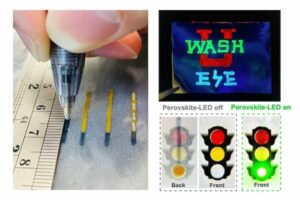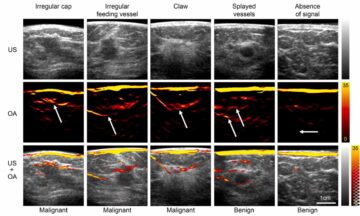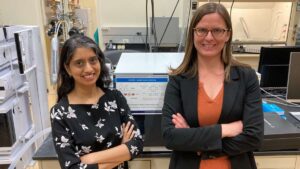
The Royal Society is piloting a new fellowship programme for Black postdocs to encourage them to stay in science. The initiative offers both financial support and professional development to help these scientists establish an independent research career in the UK. Applications for the pilot scheme open in November.
Data from the Higher Education Statistics Authority (HESA) has consistently shown that people from Black backgrounds are underrepresented at all academic levels in science. The latest HESA statistics reveal that in 2022 only 4% of PhD students were Black. This figure reduces to 2.5% for academic staff and declines even further for staff in senior positions.
In the light of such concerns, in 2021 the Royal Society brought together universities, funders and groups representing scientists of Black heritage to discuss the issues facing them in science. Such problems include a lack of visible role models in academia, a lack of information for individuals who do not have family members who went to university, and the expense and relative instability of academic careers.
It is also known that Black academics in senior roles are more likely than their counterparts of other ethnicities to spend time on mentoring and promoting diversity. Since these activities are not usually considered in traditional metrics of academics’ performance, this could affect career progression and further compound underrepresentation.
Lasting change
The Royal Society’s new Career Development Fellowships (CDFs) will support scientists with £690 000 in funding over four years, alongside mentoring, training, and networking opportunities.

The importance of citing Black women in physics
They will initially be offered to five postdoctoral scientists but, depending on the success of the pilot scheme, similar fellowships may be extended in future to scientists from other underrepresented groups.
“Some people may be shocked that a scheme like this is needed in 2023, but the data present a clear case for action on the systemic underrepresentation of UK scientists from Black backgrounds in academia,” says Mark Richards from Imperial College London who also sits on the Royal Society’s diversity and inclusion committee. “I hope this scheme opens up rewarding careers to many more talented individuals from diverse backgrounds – and when we look back in years to come, we see this as a turning point.”
- SEO Powered Content & PR Distribution. Get Amplified Today.
- PlatoData.Network Vertical Generative Ai. Empower Yourself. Access Here.
- PlatoAiStream. Web3 Intelligence. Knowledge Amplified. Access Here.
- PlatoESG. Carbon, CleanTech, Energy, Environment, Solar, Waste Management. Access Here.
- PlatoHealth. Biotech and Clinical Trials Intelligence. Access Here.
- Source: https://physicsworld.com/a/royal-society-launches-fellowships-to-support-black-scientists/
- :has
- :is
- :not
- $UP
- 000
- 2021
- 2022
- 2023
- a
- AC
- Academia
- academic
- academics
- Action
- activities
- affect
- All
- alongside
- also
- an
- and
- applications
- ARE
- AS
- At
- back
- backgrounds
- BE
- Black
- both
- brought
- but
- Career
- careers
- case
- clear
- College
- come
- committee
- Compound
- computer
- Concerns
- considered
- consistently
- could
- data
- Declines
- Depending
- Development
- discuss
- diverse
- Diversity
- Diversity and inclusion
- do
- Education
- encourage
- engineer
- establish
- Even
- facing
- family
- family members
- fellowships
- Figure
- financial
- five
- For
- four
- from
- funding
- further
- future
- Group’s
- Have
- help
- heritage
- hope
- HTTPS
- image
- Imperial
- Imperial College
- Imperial College London
- importance
- in
- include
- inclusion
- independent
- individuals
- information
- initially
- Initiative
- instability
- issue
- issues
- jpg
- known
- lab
- Lack
- latest
- launches
- levels
- light
- like
- likely
- London
- Look
- many
- max-width
- May..
- Members
- mentoring
- Metrics
- models
- more
- needed
- network
- networking
- Networking opportunities
- New
- November
- of
- offered
- Offers
- on
- only
- open
- opens
- opportunities
- Other
- over
- People
- performance
- phd
- Physics
- Physics World
- pilot
- piloting
- plato
- Plato Data Intelligence
- PlatoData
- Point
- positions
- postdocs
- present
- problems
- professional
- progression
- promoting
- reduces
- relative
- representing
- research
- reveal
- rewarding
- Role
- roles
- royal
- says
- scheme
- Science
- scientists
- see
- senior
- shocked
- shown
- similar
- since
- sits
- Society
- spend
- Staff
- statistics
- stay
- Students
- success
- such
- support
- systemic
- talented
- than
- that
- The
- The Initiative
- the UK
- their
- Them
- These
- this
- thumbnail
- time
- to
- together
- traditional
- Training
- true
- Turning
- turning point
- Uk
- underrepresented
- Universities
- university
- usually
- visible
- we
- went
- were
- when
- WHO
- will
- with
- Women
- working
- world
- years
- zephyrnet













